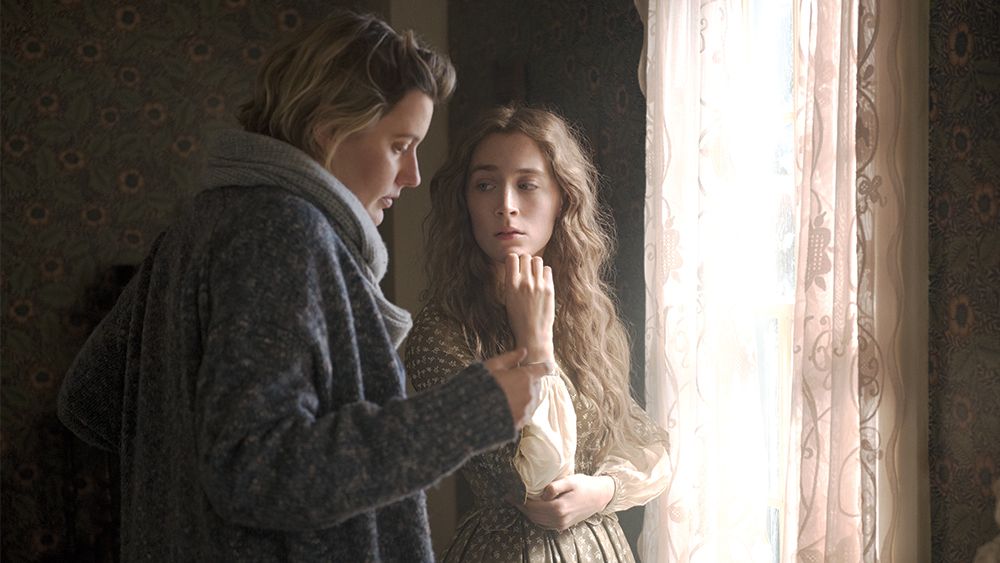Oscar Nominations Bring Out Film Biz’s Dual Personality Woes
By Steven Gaydos
LOS ANGELES (Variety.com) – Charles Dickens’ 160 year-old “best of times/worst of times” conundrum from “Tale of Two Cities” beautifully sums up the state of filmmaking in this young century. Seemingly around every corner there’s a new disruptive technology changing, and often complicating, either production or distribution.
Suffice to say, one person’s disruption is another person’s breakthrough. And this year’s Oscar nominations provide a multitude of examples of how this dichotomy plays out across the filmmaking landscape.
Streaming: Godsend or the Devil’s Handmaiden?
From the point of view of film exhibitors, Netflix and its fellow streamers are the avowed disruptive enemy of everyone selling tickets, and more importantly, profit-packed soft drinks, popcorn and candy bars. But from the point of view of filmmakers (and TV producers) in virtually every corner of the globe, the streamers are pouring tens of billions of dollars into productions and transforming formerly dormant film industries into hives of activity, leading to breakthroughs in reaching new audiences. So Netflix’s milestone of 24 Oscar nominations is eliciting cheers from the production bleachers and sending chills down the spines of the Red Vine concessionaires.
Academy Newbies: Moving the Goalposts or Not Disruptive Enough?
On the heels of #OscarsSoWhite, the Academy of Motion Picture Arts and Sciences did an admirable job of confronting its own lack of diversity and added thousands of new members, and effectively boosted the number of voting people of color as well as bringing in hundreds of filmmakers hailing from outside the United States. The 2019 best picture nomination for “Black Panther,” combined with acting nominations for Yalitza Aparicio and Marina de Tavira on top of wins for Mahershala Ali and Regina King gave Oscar followers reason to hope for a brighter and more multi-hued future for the awards.
Then came 2020: Persons of color were hard to find. Of the 20 acting nominations, only one slot was accorded to a person of color, with Oscar newbie Cynthia Erivo being the lone representative of diversity in acting. Is the glass half-full as evidenced by the historic bounty of nominations for South Korean thriller “Parasite?” Or half-empty as disappointed supporters Even thousands of new voters haven’t turned the tide, at least not in 2020.
#TimesUp: Winning the Game or Losing Ground at the ?
Variety has been annually updating the work of Martha M. Lauzen , executive director of the Center for the Study of Women in Television and Film at San Diego State University, every year since the late 1990s. In 2019, there was what appeared to be major progress for perhaps the first time in 20 years.
In June of last year, Variety reported that Lauzen’s “Indie Women” report found “women achieved record-setting levels as directors (33% in 2018-19, up from 29% in 2017-18), writers (32% in 2018-19, up from 26%), producers (37% in 2018-19, up from 36%), executive producers (32% in 2018-19, from 26%) and editors (29% in 2018-19, up from 27%).”
So when the Academy announced its “best director” nominees, where were helmers Greta Gerwig, Marielle Heller, Lorene Scafaria and Lulu Wang? Not in the nominee’s circle, obviously. Few would argue that the status quo is acceptable but fewer still are stepping forward with a solution to the perennial lack of gender parity at the Oscars.
Digital Tools: Liberating the Filmmakers or Loading the Blockbuster Dice?
The big story for indie filmmakers at the turn of the century was the precipitous drop in the costs of film production. Edgy film artists like Sean Baker proved you could make award-winning films with little more than imagination, heart and an iPhone. Oscar champ Barry Jenkins demonstrated with “Moonlight” how lower costs of entry for helmers could open doors to best picture diversity. Low-budget films crowded their way into the awards season and digital distribution appeared to be the path away from spending tens of millions on prints and marketing.
Then came 2020: the digital-effects packed “Avengers: Endgame,” with a reported production budget of $357 million, became the biggest-grossing film of all time, helmed by former micro-budget Slamdance competitors the Russo brothers. A year before the Russos debuted in Slamdance, director Jon Favreau broke through with his $200,000 indie comedy “Swingers.” In 2019 Favreau’s digitally powered “Lion King” cost $260 million and grossed $1.7 billion.
There’s no left-field micro-budget gem like “Moonlight” or “Florida Project” in the Oscar noms class of 2019. So perhaps the operative phrase for those encouraging those august bodies that grant golden awards to embrace change, innovation and inclusion comes not from Dickens but of Branch Rickey: “Wait till next year!”

